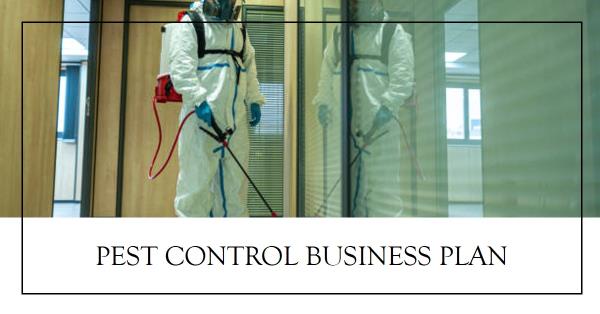Executive Summary:
A Pest Control Business provides pest management services for residential and commercial clients. This business plan outlines the services offered, target market, competitive analysis, marketing strategy, operations plan, financial projections, and management structure for the business.
Business Description:
The Pest Control Business provides a variety of pest management services to residential and commercial clients. Services include inspection, identification, treatment, and prevention of common pests such as rodents, insects, and wildlife. The business aims to provide reliable, efficient, and effective pest management solutions to clients.
Market Analysis:
The pest control industry is a growing sector of the economy, with an estimated market size of over $8 billion in the United States alone. The industry is expected to continue to grow due to increasing awareness of the health risks posed by pests, as well as growing concerns about the damage pests can cause to property. The target market for the Pest Control Business includes homeowners, property managers, commercial businesses, and government agencies.
Services:
The Pest Control Business offers a range of pest management services, including inspection, identification, treatment, and prevention of pests. Services are customized to meet the specific needs of each client, and may include ongoing maintenance plans to prevent future infestations.
Marketing and Sales Strategy:
Marketing efforts will focus on building brand awareness and generating leads through targeted advertising, direct mail, and networking with property managers and real estate agents. The business will also leverage social media and online directories to increase visibility and drive traffic to the business website. Sales efforts will focus on building relationships with clients and providing excellent customer service to generate repeat business.
Operations Plan:
The Pest Control Business will operate out of a central office and will dispatch technicians to service clients throughout the region. Technicians will be trained in pest identification, treatment, and prevention, and will use state-of-the-art equipment and techniques to provide effective pest management solutions. The business will prioritize timely service and prompt response to client concerns.
Financial Projections:
The Pest Control Business anticipates initial startup costs of $100,000, including equipment, supplies, and marketing expenses. The business expects to generate revenue of $250,000 in the first year, with steady growth in subsequent years as the business expands its client base and adds additional services. Profit margins are expected to be around 20%.
Management Structure:
The Pest Control Business will be owned and operated by a team of experienced pest management professionals. The management team will be responsible for overseeing day-to-day operations, developing and executing the business strategy, and ensuring high-quality service to clients.
Pros of the Industry:
Growing market with steady demand for services
Opportunities for repeat business and long-term contracts
Ability to differentiate through quality of service and specialization
Relatively low startup costs compared to other industries
Cons of the Industry:
Intense competition from other pest control businesses
Physical demands of the job, including exposure to chemicals and potential hazards
Dependence on client satisfaction and word-of-mouth referrals
Skills and Experts Required:
To start and run a successful Pest Control Business, you will need a combination of technical and business skills. Technical skills include knowledge of pest biology, identification, and treatment, as well as experience working with equipment and chemicals. Business skills include marketing, sales, financial management, and customer service. It may be helpful to hire experts in these areas, such as a marketing consultant or financial advisor, to ensure the business is set up for success.
Overall, starting a Pest Control Business can be a lucrative and rewarding venture, but requires careful planning, attention to detail, and a focus on delivering high-quality service to clients. By developing a solid business plan, investing in the necessary equipment and expertise, and executing an effective marketing and sales strategy, you can build a successful Pest Control Business that can provide long-term growth and profitability. Here are some additional steps to consider when starting a Pest Control Business:
Obtain necessary licenses and permits: Pest control businesses typically require licenses and permits at the state and local level. Research the requirements in your area and obtain the necessary permits before starting operations.
Develop a comprehensive training program: Proper training is essential for ensuring that technicians can provide effective pest management solutions to clients. Develop a training program that covers pest biology, identification, treatment, and safety procedures.
Invest in high-quality equipment and supplies: The quality of equipment and supplies can have a significant impact on the effectiveness of pest management solutions. Invest in state-of-the-art equipment and high-quality supplies to provide the best possible service to clients.
Implement eco-friendly practices: Many clients are becoming increasingly concerned about the environmental impact of pest management solutions. Implement eco-friendly practices, such as using non-toxic treatments and minimizing waste, to differentiate the business and attract environmentally-conscious clients.
Focus on customer service: The success of a Pest Control Business depends on the satisfaction of clients. Focus on providing excellent customer service, including timely response to client concerns, and develop a referral program to generate repeat business.
In conclusion, a Pest Control Business can be a profitable and rewarding venture for entrepreneurs with the right combination of technical and business skills. By developing a solid business plan, investing in high-quality equipment and expertise, and prioritizing customer service and eco-friendly practices, you can build a successful Pest Control Business that provides effective pest management solutions to clients and generates long-term growth and profitability.




